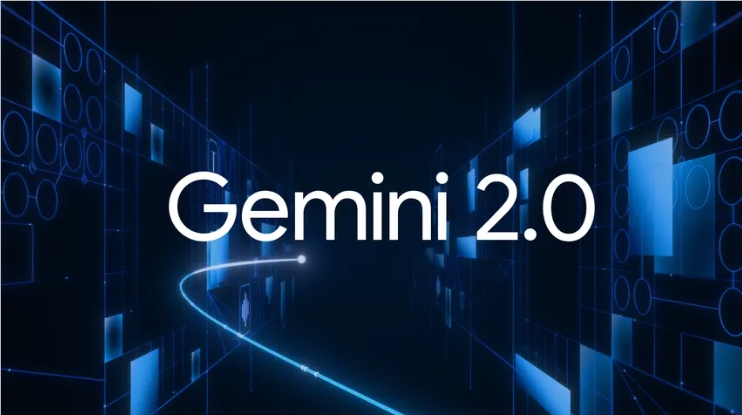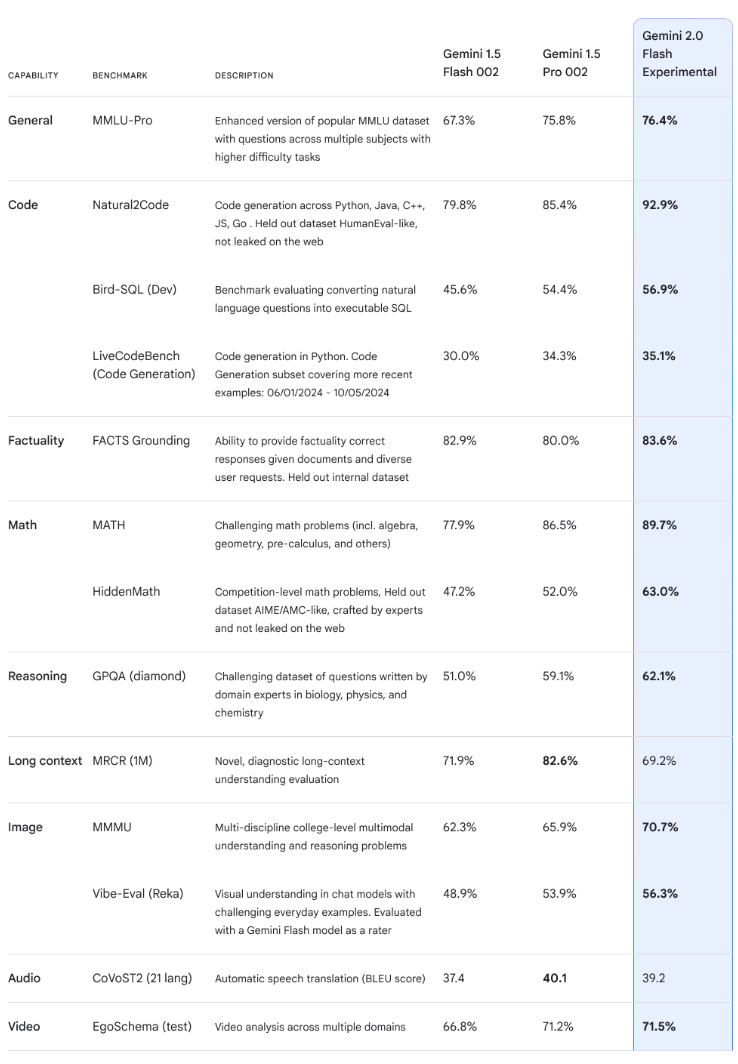Google’s major release of Gemini 2.0 marks an important step for artificial intelligence to move into the agent era. This upgrade not only significantly improves performance, but also achieves breakthroughs in multi-modal capabilities and the use of native tools. Gemini 2.0 supports multiple forms of input such as text, image, video, audio, etc., and supports multi-modal output functions such as native image generation and text-to-speech for the first time, aiming to make information more useful. Google plans to quickly integrate Gemini 2.0 into its product ecosystem, such as Google Search and the newly launched "Deep Research" feature, to further enhance user experience.

Google today announced the launch of its latest generation artificial intelligence model Gemini 2.0, the company’s most powerful AI model to date. This major upgrade not only significantly improves performance, but also marks an important step for artificial intelligence to move into the agent era.
According to Sundar Pichai, CEO of Google and Alphabet, Gemini 2.0 has achieved breakthroughs in both multi-modal capabilities and the use of native tools. The new model can not only understand and process multiple forms of input such as text, images, videos, and audio, but also supports multi-modal output functions such as native image generation and text-to-speech for the first time.
"If Gemini 1.0 was about organizing and understanding information, Gemini 2.0 is about making information more useful," Pichai said. Currently, the model is open to developers and trusted testers.
Technological innovation and performance improvementDemis Hassabis, CEO of Google DeepMind, revealed that the first batch of releases is the experimental version of Gemini 2.0 Flash. This version significantly improves performance while maintaining low latency. Notably, the 2.0 Flash even outperformed the 1.5 Pro in key benchmarks, being twice as responsive.
The new model runs on Google's sixth-generation TPU Trillium hardware platform, which is also the infrastructure that supports 100% training and inference of Gemini2.0. Currently, this platform is open to customers.

Google plans to quickly integrate Gemini 2.0 into its product ecosystem. From now on, Gemini users around the world can choose to use the 2.0 Flash experimental version through the web version, and the mobile application version will also be launched soon. In addition, Google Search’s AI overview feature will also integrate 2.0’s advanced reasoning capabilities to solve more complex topics and multi-step problems.
It is worth noting that Google has also launched a new feature called "Deep Research", which will be available in Gemini Advanced and can act as a research assistant to explore complex topics and automatically generate reports.
Explore the future of AI agentsIn this release, Google also demonstrated several research prototype projects built on Gemini 2.0:
Project Astra: This is a universal AI assistant prototype with multi-language conversation capabilities, the ability to use tools such as Google search, Lens, and Maps, and a conversation memory function of up to 10 minutes. Project Mariner: This is a browser interaction prototype that can understand and reason about various types of information on the web and assist users in completing tasks through a Chrome extension. On the WebVoyager benchmark, it achieved 83.5% of the best results. Jules: This is an AI code agent for developers that can be integrated directly into GitHub workflows to assist with problem solving and task execution. Safety and Responsible DevelopmentWhile driving these innovations, Google places special emphasis on the importance of security and responsible development. The company has taken several measures to ensure the safe use of AI agents:
Work with the Responsibility and Safety Committee (RSC) to identify and understand potential risks Improve AI-assisted red team methods to enhance risk assessment and mitigation capabilities Establish security assessment and training mechanisms for multi-modal input and output Add protection against malicious commands in Project Mariner Mechanism’s future outlookThe release of Gemini 2.0 is regarded as an important milestone in the development of AI. By combining advanced multimodal capabilities with agent capabilities, Google demonstrates its ambitions in advancing AI technology. As these new features are gradually integrated into various products, users will be able to experience smarter and more practical AI assistant services.
However, Google also admitted that AI agent technology is still in its early stages and needs to continue to collect feedback through cooperation with trusted testers to continuously improve and improve this technology. The company is committed to continuing to advance the development of AI technology in a responsible manner, ensuring safety and ethical standards while exploring new possibilities.
For more information, please see: https://blog.google/technology/google-deepmind/google-gemini-ai-update-december-2024/#ai-game-agents
All in all, the release of Gemini 2.0 demonstrates Google's strong strength in the field of artificial intelligence and its foresight for future development. It also indicates that artificial intelligence technology will further penetrate into people's lives and bring people more convenient and smarter services. But at the same time, safety and ethical issues still require continued attention and resolution.